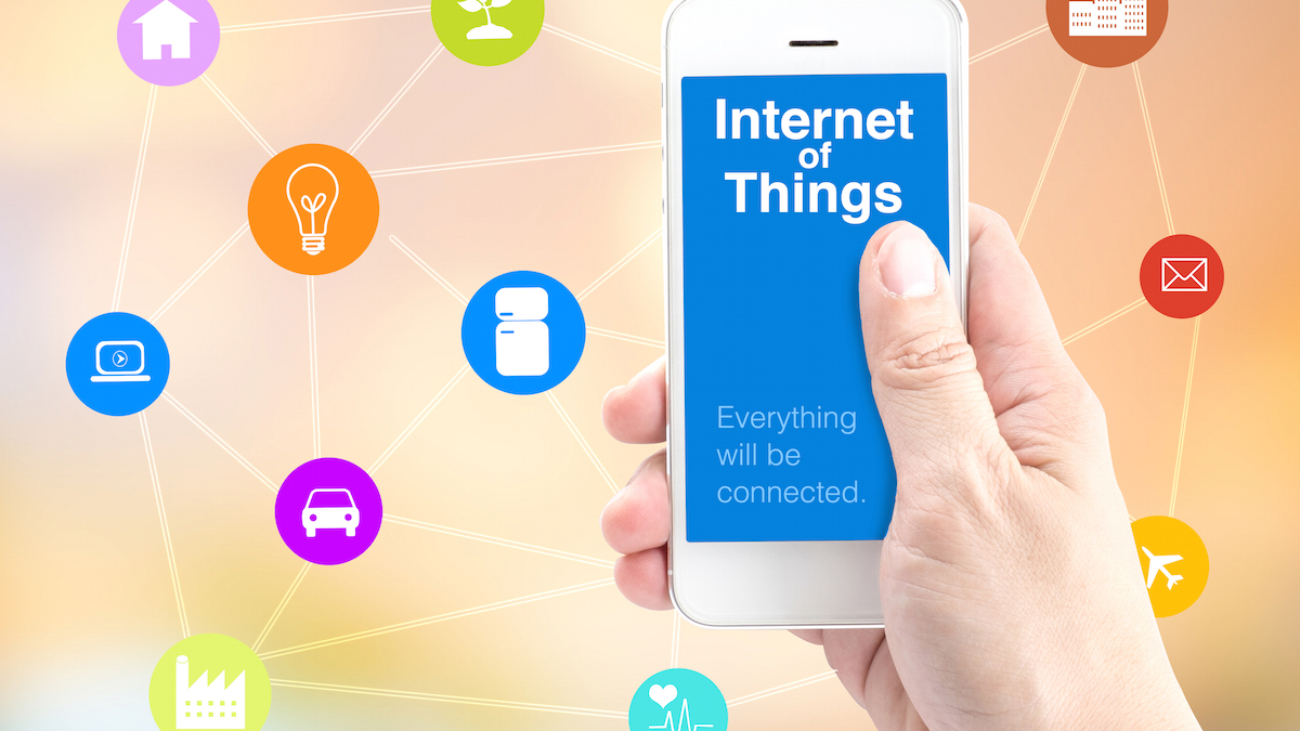 This may be the first time that you’re hearing the term the ‘internet of things’; or you may have heard about it before, but really don’t know what it is. Regardless of how much you know about the internet of things or IoT (as it’s also known), we’re going to answer some of the most commonly asked questions.
This may be the first time that you’re hearing the term the ‘internet of things’; or you may have heard about it before, but really don’t know what it is. Regardless of how much you know about the internet of things or IoT (as it’s also known), we’re going to answer some of the most commonly asked questions.
What is the internet of things and why is it important?
Tech companies and experts have been discussing the internet of things for a long time – decades even. In fact, the first internet-connected toaster was introduced at a convention in 1989.
How it all works is complex, but what it is, is simple:
Devices are connected over the internet, allowing them to talk to us, to applications, and to each other.
A popular example is the smart refrigerator: a refrigerator that can tell you you’re out of milk by texting you, because its internal cameras see there isn’t any milk or that it’s past its use-by date.
While the smart fridge isn’t common right now, the concept of the IoT in home heating and energy is. Throughout the world, energy companies are being encouraged to roll out smart meters. These meters have a function that lets you turn your heat on remotely, set it to turn down if it’s sunny or warm outside, or to turn-off if no one is home.
IoT is more than smart devices and smart homes, however. It includes smart cities. Consider traffic signals that monitor utility use or smart bins that signal when they are full and need emptied. Think of industry that uses connected sensors to track parts or monitor crops.
Is the internet of things safe? Can it truly be secured?
Privacy and security are two of the biggest challenges with the internet of things. These devices and systems collect and store an enormous amount of data about people – the smart meter stores information about when you’re home and what devices you use, and it communicates that information to other devices. The information is then stored in databases maintained by companies.
According to some security experts, not enough security and privacy measures are being built into the IoT in these early stages. To prove their point, they’ve hacked a number of devices, including connected baby monitors, automated lighting, and smart fridges. They’ve even gone so far as to hack city systems such as traffic signals.
Hackers haven’t devoted a lot of time or attention to the IoT, likely because too few people are using connected appliances, so it’s not worth their effort. As soon as there is a financial benefit to hacking smart devices or homes or cities, a cyber-criminal will most definitely be working away at it.
So, at this point in time the IoT is relatively safe. The risk of loss or damage with your smart meter isn’t any more serious than it is with your home PC. The challenge remains, however, that not enough is being done to ensure that, in the future, hackers aren’t able to penetrate connected devices and systems.
How will the internet of things affect my work environment and business?
How the IoT will affect your work or business depends on the industry you’re in. How it will affect it and how quickly will depend entirely on the uptake of connected devices and systems within each segment. Manufacturing is often considered the furthest ahead, because IoT is useful for organising and tracking tools, machines, and people.
Farmers are utilising connected sensors to monitor cattle and crops. They’re drawn to these devices in hopes of boosting their yields, efficiency, and to better track the health of their herds.
There are endless examples of the use of connected devices across industries, and the possibilities of use are endless. We’ll likely see companies integrate more and more of these devices into their businesses the same way computers, tablets, and smartphones have been integrated into the work environment.
What does the internet of things mean for healthcare?
On a health and fitness level, more people are strapping on smart watches and fitness bands to track their steps and heartrate. Monitored patches and smart pills are already available.
Intel has created a smart band that monitors how much patients with Parkinsons shake. Sonamba tracks the daily activity of elderly and ill people to watch for dangerous irregularities. AliveCor created a mobile ECG so people can detect serious heart conditions using their smart phone or tablet.
Is the internet of things real?
The IoT is real, and conversations are happening all over the world about it and how it will impact our lives. Many are trying to understand the opportunities and concerns on a deeper level, so they can figure out a way forward. In the meantime, all we can do is stay up-to-date and educated about new breakthroughs in the IoT.

